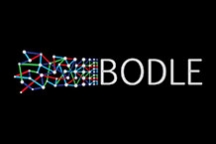|
We are delighted to announce that the Parkwalk Opportunities EIS Fund has closed an investment in Bodle Technologies, a spin-out from...
|
|
|||||
 |
|
|||||
|
Dear , Bodle Technologies has developed a novel, smart material for use in low-energy high-resolution reflective displays and smart glazing; the world’s first solid state reflective display technology (SRD®). Bodle’s display device offerings offer high flexibility, ultra-high resolution, and very low energy consumption, making it a highly attractive proposition in, for example, the global display market. The invention, by a team led by Professor Harish Bhaskaran and his postdoctoral researcher Peiman Hosseini at the University’s Department of Materials, attracted widespread attention from industry following the publication of a paper in Nature in 2014. The company was formed in 2015 to commercialise the technology and future research. The Technology The core technology centres on the creation and manipulation of colour, generated by an optical nano-cavity, reflected off a surface by changing the refractive index of ultra-thin functional layers (a phase change alloy). The phase of the active layer and the colour can be switched multiple times using optical, electrical or mechanical impulses. Critically as the images are reflective they do not need to produce light and hence consume very low amounts of energy. They are also easy to view in bright light conditions and do not generate viewer eye fatigue. IP The technology employs existing industrial materials and uses well-proven methods to deposit the layers. Bodle’s innovation lies in the way it creates the patented ultra-thin film structures and in the patented control systems which ensure that the switching is reliable. The company also developed its own software to design the multilayer stacks of materials. Professor Bhaskaran’s research group continues to generate new IP and this is exclusively licensed to Bodle. The Opportunity There are three clear opportunities for the technology which Bodle is currently pursuing: advertising displays, smart glazing and security. The global display market alone is estimated to be worth $169 billion by 2022 by MarketsandMarkets. Bodle’s product offers low energy, high quality, high resolution colour displays, which resemble paper, and can be utilised across all traditional applications, such as signage, wearables, retail labelling. In the future these materials would be suitable for portable, flexible substrates and advertising displays. Smart glazing has historically relied upon the deposition of films or chemicals across entire panes of glass. Bodle’s technology offers the option of depositing a material onto specific regions of the glass and of offering dynamic displays or shading in that specific region only. The technology can allow the full visible spectrum to penetrate the glass whilst modulating the penetration of infrared light, hence controlling energy management. IDTechEx estimates that the market for smart glass technology will be worth $700m in 2024 in an overall market approaching $8bn. The third market Bodle is exploring is in the application of the technology to provide security features on high value documentation and goods, including currencies. The ability to deposit its films in ultra-thin layers in high speed manufacturing and for those layers to respond to probing techniques offers the edge here. Smithers Pira estimates the worldwide market for security printing at $36bn in 2020. The Team David Fyfe, Executive Chairman and Founder, is currently Executive Chairman of Oxford PV. His career spans several top management positions in both Europe and the United States, and he has held board positions in several firms over the years. As Chief Executive Officer of Cambridge Display Technologies (CDT), he took the laboratory-based spin-off to a NASDAQ flotation and a subsequent $285m trade sale. Professor Harish Bhaskaran, CSO and Founder, is Professor of Applied Nanomaterials at the University of Oxford, where he leads the Advanced Nanoscale Engineering Group. A former researcher at IBM Research, Harish has worked in both industry and academia over the past 15 years, including in product development under joint development agreements. His research has most recently focused on novel applications of phase change materials and on the manufacturing of nanoscale components. Peiman Hosseini, CTO and Founder, was a member of the RAEng Enterprise Hub in 2014 and has won numerous awards for this technology including the Printed Electronics R&D Academic Award. Peiman leads the technology development and with the other management team members helps define business and development strategy. The Outlook Bodle has continued to advance its technology, for example in September 2016 it achieved reflective specifications for the primary colours required for manufacture of the core films, and to grow its engineering and business development teams. It has also progressed with its commercialisation plans and engaged with potential customers and partner OEMs. We remain confident that the team’s leading edge technology and pragmatic management will provide the platform for the company to realise the significant opportunity ahead of it. |
||
|
||
|
|||||
